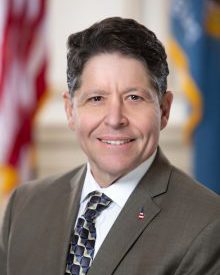End of Life Options Act
End of Life Options Act
Synopsis:
H.B. 140 would give Delawareans with terminal illnesses the option to self-administer life-ending medication. It would also create numerous safeguards seeking to ensure patients were fully informed, capable of understanding the consequences of their decision and not under coercion. Its primary sponsor, Rep. Paul Baumbach, introduced similar bills in the previous two legislative sessions, but neither received a vote before the full House. H.B. 140 would define terminal illness as an irreversible condition that will likely cause death within six months. The safeguards it would create include several waiting periods, approval of two physicians and referral to a psychiatrist or psychologist if either physician expresses concern about the patient’s decision-making capacity. H.B. 140 supporters argue that it would enable an individual to preserve his or her autonomy and dignity, as well as avoid potential suffering. Opponents point out that no number of safeguards can completely eliminate the risk of coercion and that no medical prognosis can be made with complete certainty. Also, by permitting terminally ill individuals to fill a prescription for lethal medication on their own, H.B. 140 appears to create a period of time in which the medication potentially could be lost, stolen or forcibly administered.
Supporters:
Reps. Baumbach (D), Kowalko (D), Osienski (D), Seigfried (D); Sens. Hansen (D), Sokola (D); Compassion & Choices, Death With Dignity, Delaware United, Network Delaware, Unitarian Universalist Delaware Advocacy Network, Women’s March Sussex.
Opponents:
Gov. Carney (D); Rep. Lynn (D); American Association of People with Disabilities, Americans United for Life, Delaware Catholic Action Network, Delaware Developmental Disabilities Council, Delaware Health Care Association, Disability Rights Education and Defense Fund, Medical Society of Delaware, National Council on Disability.
Links to Additional Resources:
- H.B. 140
- H.B. 160 from 2017–2018 General Assembly
- CDS write-up of H.B. 160
- JD Supra: “Delaware’s death with dignity/end of life options/physician-assisted suicide debate continues with H.B. 140”
- Personal narrative by Ron Silverio, H.B. 140 advocate and namesake
- Americans United for Life president warns H.B. 140 lacks effective safeguards and endangers people with disabilities, among other populations
- Delaware State News: “Democrat pushes physician-assisted suicide bill”
- Journal of Law and the Biosciences: “Suicide and death with dignity”

